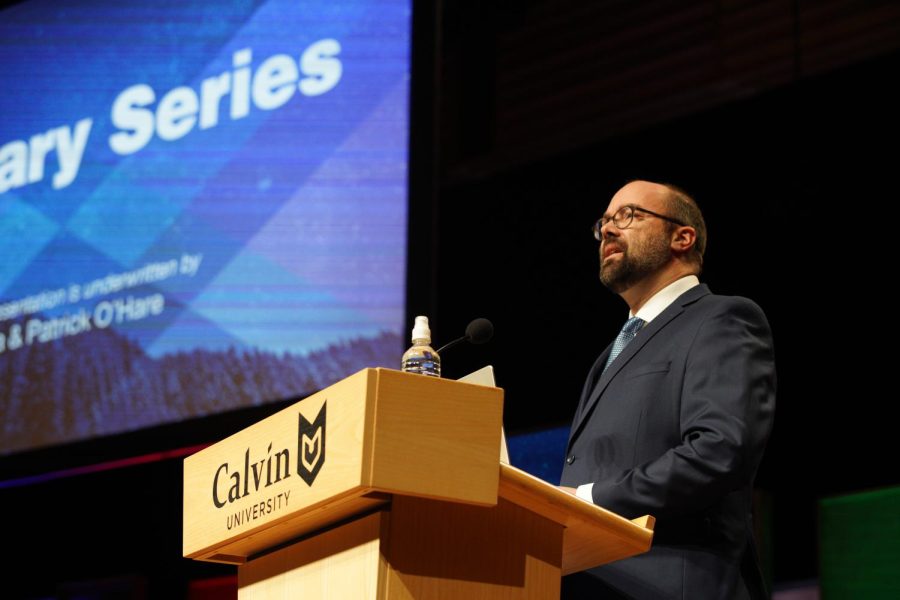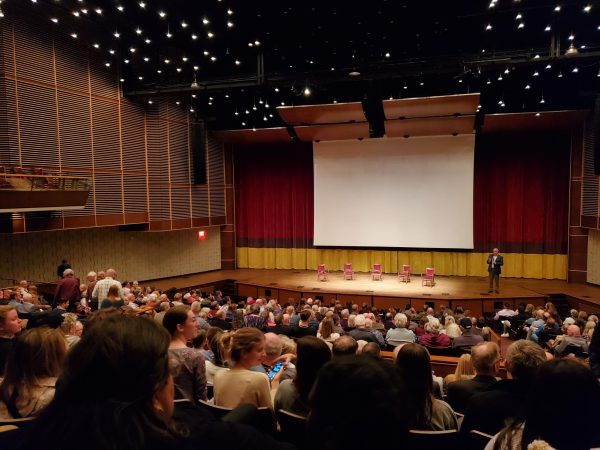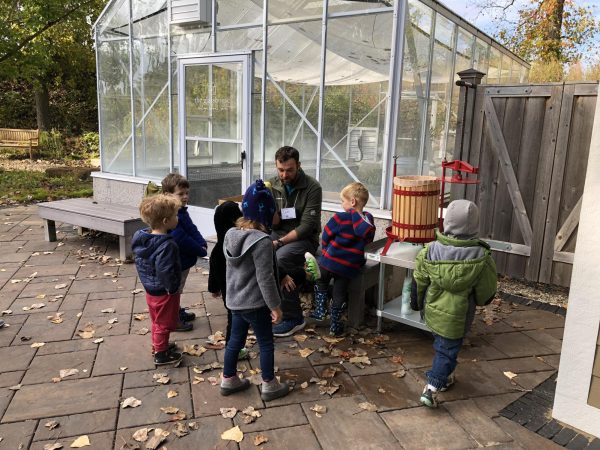Continuing the legacy of the January Series: Michael Wildschut’s first Series as director
January Series Director Michael Wildschut hopes these talks can share an “environment of learning.”
Last Friday marked the last day of the first January Series directed by Michael Wildschut. Wildschut became director in April 2022, after many years at Calvin serving as an event coordinator and associate director of alumni relations. Wildschut shadowed and learned from previous director Kristi Potter before her retirement last year.
In his 15 years in the Event Services office, Wildschut helped to coordinate many campuswide events, including the Festival of Faith and Music. His experience in that role and in the Alumni Association office, where he transferred during COVID, made him a good fit for the director role.
A year-round effort
To Wildschut, the position is “outward facing” and “has significant reach outside of campus.” His job is a year-round commitment. He starts in the spring, with “reading and learning and asking questions for new speaker possibilities and [building] a calendar,” he said. By the summer, his goal is to have the schedule set. Then, he and his team work on marketing in the fall.
When looking for speakers, Wildschut aims to incorporate a variety of disciplines and people — some staples include a musician, a Calvin faculty member and a Calvin alumnus. “While it’s fun to bring in people from all over, it’s also important to elevate the people here and give them an opportunity,” Wildschut said. “I think that’s an important thing for our current students to see and [for] our audience to see; this is what a Calvin education does.”
He also looks for speakers who can connect with “what we’re doing already on campus.” Disability advocate and Shakespeare scholar Amy Kenny’s talk on Jan. 13 had “a really nice overlap with the Ready for Life program and a lot of other things happening in our community here,” Wildschut told Chimes.
Wildschut also connects with faculty as he looks for varied speakers who share common interests with Calvin. “What are our connections internally on campus that can work well with these speakers? … What faculty members are already using these books in their classes?” Wildschut said. “Ideally, faculty feel like the Series is an extension of what they’re doing in the classroom.”
Selecting speakers
In selecting speakers, Wildschut considers both alignment with Calvin’s institutional values and relevance. On top of coordinating speakers for the Series, he also integrates faculty, administration, students and community members. Some of the ways that the Series engages community are through opportunities for students to ask speakers questions and have lunch with them, faculty members introducing speakers and students praying before each talk.
According to Wildschut, the January Series, which is in its 36th year, “is unique because it provides a free liberal arts education over 15 days in accessible formats.” Wildschut said that participants from all over the world “are seeing us as an institution that wants to learn and embodies what an educational institution is about and realizes that we’re all better, and our community is better, when we have these opportunities.”
Having interviewed many January Series speakers and taught the one-credit, four-week Honors 280 class that puts students in conversation with speakers, emerita Professor of English Karen Saupe agreed. Though other liberal arts institutions may host speaker series, “to have speakers of this caliber is kind of exceptional,” Saupe said. For her, the January Series is “like a tiny little version of a core curriculum.”
Two-way engagement
Wildschut sees the January Series as an opportunity for the speakers to see Calvin’s beliefs and hospitality, even as the speaker introduces their own ideas to the community.
When coordinating with the speakers, Wildschut said, “I want [speakers] to understand what the Series is, … why it’s unique … and why I think they would be a good part of that Series.”
The Series is not intended to be one-way; it aims to put the community in conversation with the speakers and introduce each to the other. When running the question and answer periods after January Series talks, Saupe said, “I love it when a speaker is surprised by a question.”
Wildschut recalled a group of women excitedly discussing NASA scientist Dr. Moogega Cooper’s talk after she spoke on Jan. 20. “That’s a gift that I get to step into, so that is very fulfilling when there’s an appreciation for the content … That’s worth so much. … Likewise, when speakers leave here and have a great experience — that hospitality is one of my primary goals,” Wildschut said.
A goal of hospitality
The hardest parts of the job, according to Wildschut, are technical issues and when people are not willing to give the Series a second chance. In fact, he said that some of the most rewarding emails that he gets are from people who are willing to come back and try the Series again even though they may not have enjoyed that day’s talk.
This is because Wildschut values the perspective that the January Series offers. “The underwriters know that the best way to bless — one of the ways to benefit — the community is to make learning opportunities available. Not that you’re going to agree with everyone that comes here to talk. … It is not about being in an echo chamber, but it’s about sharing the environment of learning,” Wildschut said.
While the January Series now reaches around the world in its virtual format, the in-person experience remains special, according to Wildschut and Saupe — especially for students.
Wildschut hopes that students will still participate in the January Series after graduation. “So that means I have to make them aware of what the January Series is. I think that is a really important goal moving forward,” he said.
“I will say that I missed a lot of good talks in my first years at Calvin because I thought I was too busy to go to them or because I didn’t know I would be interested in them,” Saupe said. “And if I were starting over at Calvin, I would be going to all of them.”








